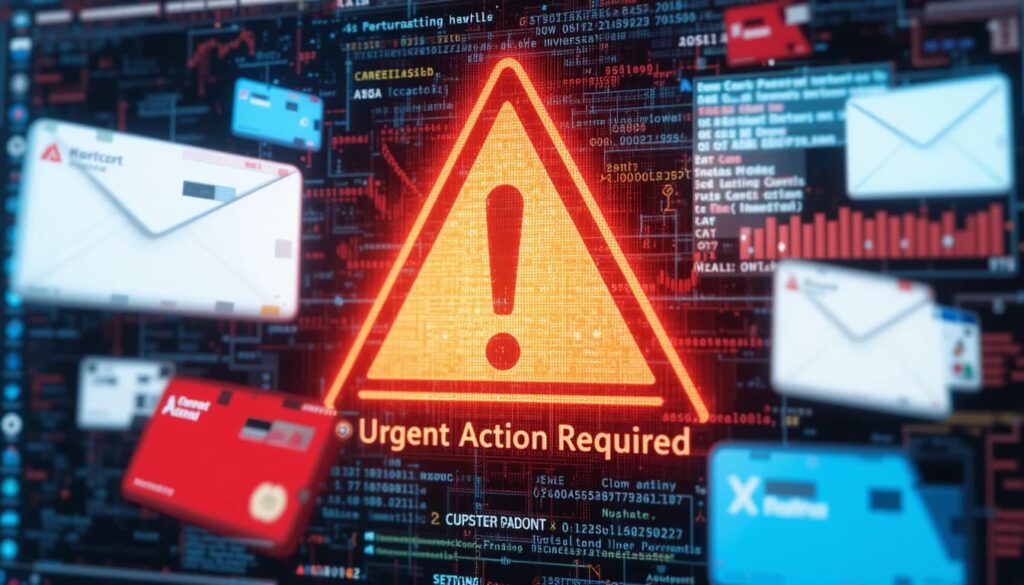In today’s increasingly digital landscape, financial scams have become more sophisticated, targeting individuals across various online platforms. Understanding how these scams operate and taking proactive steps to protect yourself is essential for staying safe online.
Nowadays, cybercriminals are constantly developing new tactics to scam people so it is really important to learn how to identify and prevent online financial scams?
What Are Online Financial Scams?

Online financial scams involve deceptive tactics designed to steal money or confidential information via the internet. Some of the most common types include:
- Phishing Attacks: Phishing attacks are something like emails or messages that appear genuine and prompt users to share sensitive data. Staying safe while over the Internet is crucial and everyone should know how to detect phishing scams.
- Investment Scams: Bogus schemes that promise guaranteed, high returns with little to no risk.
- Romance Frauds: Scammers build fake emotional relationships online to exploit victims financially.
- Fake Tech Support: Unsolicited calls or messages claiming to be tech support, asking for remote access, PIN codes, or unnecessary payments.
- Impersonation Scams: Fraudsters pose as trusted individuals or organizations to extract personal details or payments.
How to Spot Warning Signs

Identifying red flags early can help you avoid falling victim to financial scams:
- Unexpected Contact: Random messages, calls, or emails requesting personal or financial information.
- High-Pressure Tactics: Scammers often create urgency or fear to pressure victims into making hasty decisions.
- Too-Good-To-Be-True Offers: If something sounds unrealistically rewarding, it likely is. Always verify authenticity before sharing any personal details.
- Unusual Payment Methods: Be cautious of requests involving gift cards, wire transfers, or cryptocurrency.
- Spelling and Grammar Errors: Poorly written communications are often signs of fraudulent intent.
Case Study: The BitConnect Collapse

One of the most infamous examples of a financial scam is BitConnect, which operated between 2016 and 2018. Marketed as a cryptocurrency investment platform, it promised daily profits using a secret trading algorithm.
- The Setup: Investors were encouraged to lend Bitcoin in return for daily interest earnings.
- The Catch: The model was unsustainable and relied on new investor funds to pay previous ones — a classic Ponzi scheme.
- The Fallout: BitConnect abruptly shut down in 2018. Its token (BCC) dropped by more than 90% within hours, and total investor losses exceeded $3.5 billion.
Incidents like BitConnect highlight the importance of researching thoroughly before making any crypto investments — especially if you’re wondering whether you should invest in Bitcoin now.
Tips to Protect Yourself

You can greatly reduce your risk by following some essential safety practices:
Given below are a few simple online scam prevention tips that can save you or minimize the risk of being targeted.
- Verify the Source: Always confirm the identity of the person or organization you are dealing with.
- Use Strong, Unique Passwords: Make them complex and update them regularly.
- Enable Two-Factor Authentication (2FA): Adds an extra layer of security during login.
- Keep Devices Updated: Regular software updates help close security loopholes.
- Monitor Financial Activity: Review your bank and credit card statements regularly for any unusual transactions.
What to Do If You Suspect a Scam

If you think you are being targeted by scammers:
- Cease Communication: Stop interacting with the suspicious party immediately.
- Report the Incident: Notify the relevant platform or cybersecurity authority.
- Review Your Accounts: Check for unauthorized access or transactions.
- Seek Support: Reach out to professional services or emotional support if you have suffered a loss.
Final Thoughts
Awareness and caution are your strongest tools against online scams. By staying alert and knowing the common digital scam alert signs, you can protect both your finances and your personal information. Stay informed, stay vigilant — and share this article to help others protect themselves from scams too.


Leave a Reply